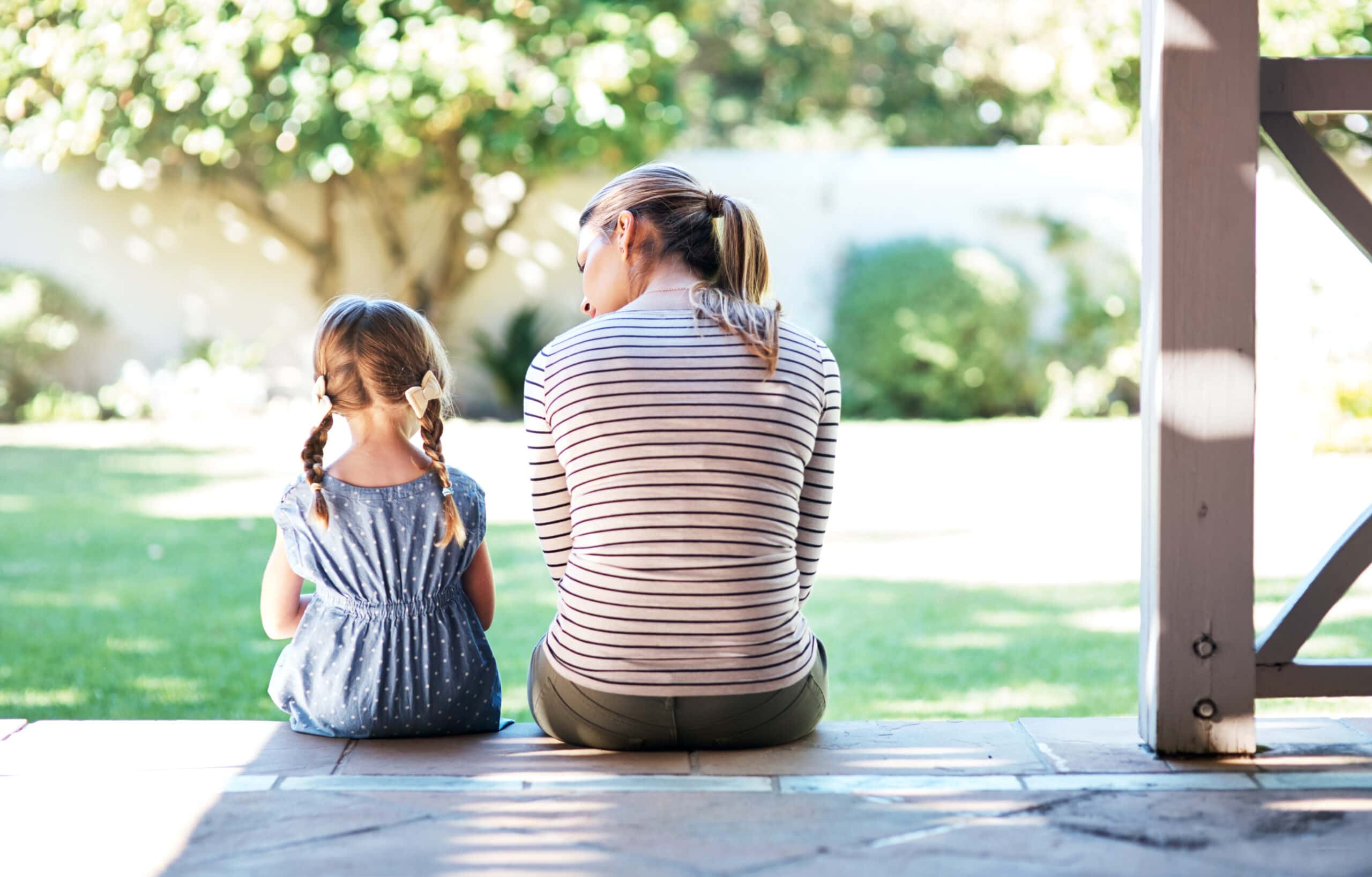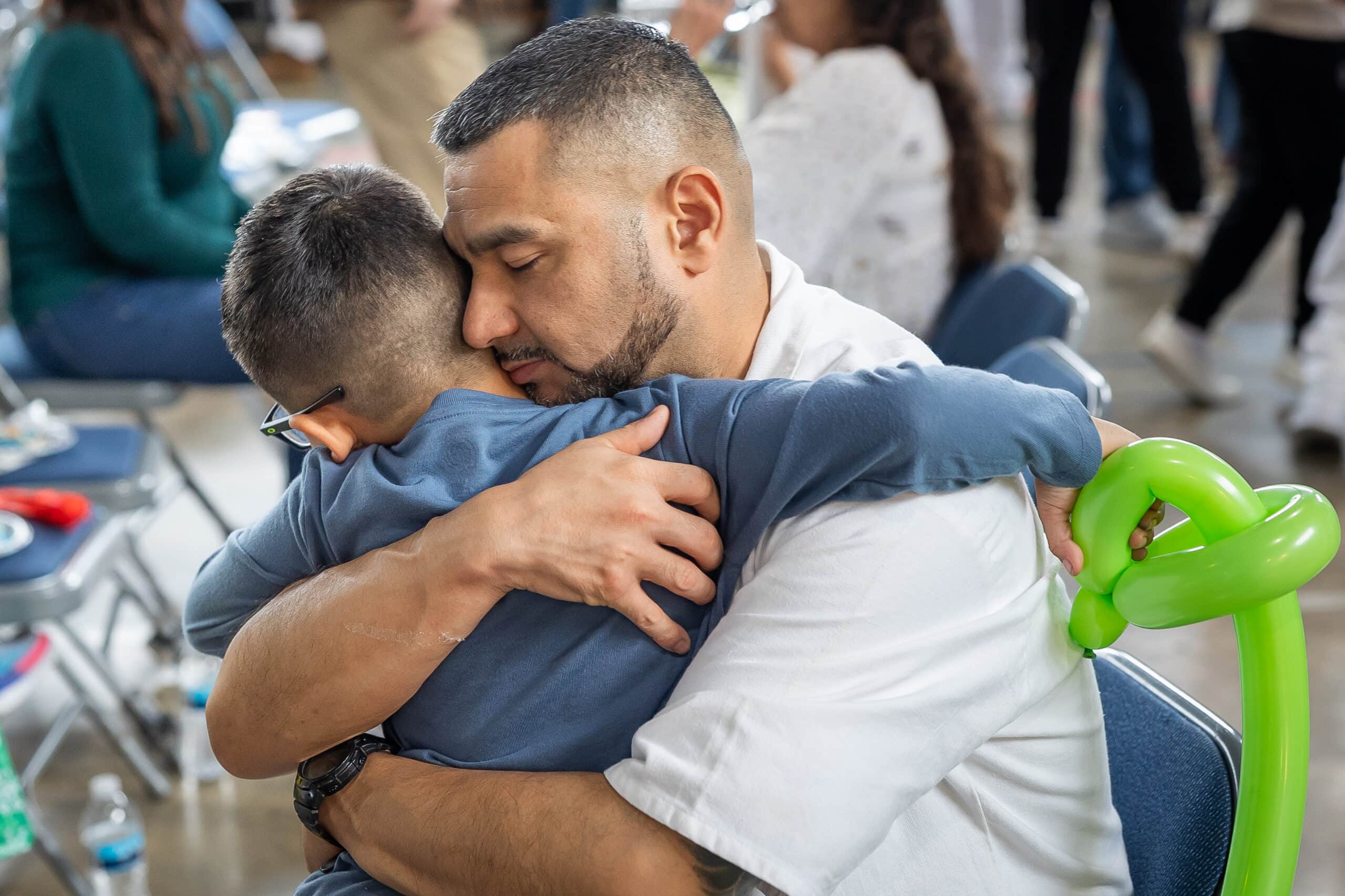
What do you say when a child wants to know why someone is in prison? How do you explain prison to a child? Or, when a child has a loved one in prison, how will you know what to say? Will you have answers?
Perhaps your child is aware of incarceration because a family member or friend is in jail or prison, or one of their friends has a loved one in prison. However the topic has come up, discussing it will help your child to feel informed and emotionally safe.
We hope this article will help you to start a dialogue with the children in your life about incarceration and the emotions and challenges that may arise.
‘THEY MADE A BAD CHOICE, BUT THEY AREN'T BAD’
Children need to understand that every decision a person makes, whether good or bad, has consequences.
If a person returns their library books on time, their library privileges will not be interrupted. If a driver goes over the speed limit, they will likely receive a costly speeding ticket.
Prison is an example of how actions impact a person’s life. If someone breaks the law or decides to join others in doing so, those bad choices can lead to interactions with the police and, possibly, to spending time in jail or prison.
But this doesn’t mean people who go to prison are bad people. They are men and women, like anyone else, who have made bad choices. And these negative decisions do not define them.

'IT'S NOT YOUR FAULT, AND I'LL TAKE GOOD CARE OF YOU'
When a loved one is incarcerated, there are so many changes and feelings a child is experiencing that may be difficult for them to express.
You can help your children through the instability that they are experiencing by:
• Encouraging them to honestly share their feelings. If they are younger in age, perhaps they can express themselves by drawing how they feel. For older children, let them know your door of communication is always open. They need assurance that they can talk with you about how they are feeling or ask any questions they have.
• Letting your children know that what happened is not their fault. Reassure them that they are loved and that whatever they are feeling is valid.
• Maintaining your children’s schedules to provide them with a steady and dependable routine.
• Being honest about what’s happening. Share age-appropriate information about what led to their loved one’s incarceration. If your child is older, you can be more specific in sharing details; if they are younger children, it might be best to share only what is necessary.
• Seeking out resources and assistance to help you and your family through this season. Prison Fellowship Angel Tree® is available to offer support as you start your journey and throughout.
• Visiting the correctional facility’s website and learning the rules for visits, calls, and mail, and then communicating those to your child. This will give the child confidence in knowing what to expect. Note: This point applies if contact is permitted and/or appropriate. If it is allowed, it can be a comfort to both the child and their incarcerated parent.

‘JESUS STILL LOVES THE PERSON IN PRISON’
We believe that Jesus offers hope, healing, and new purpose to anyone who trusts in Him. He can make even the most broken people and situations whole again.
Jesus says in Matthew 11:28 (NIV), “Come to Me, all you who are weary and burdened, and I will give you rest.”
Jesus can carry your burdens and give you rest because He offers everyone forgiveness. Some choices may lead a person to prison, but everyone has made mistakes. No matter what you’ve done, God still loves you and offers forgiveness. Jesus died and rose again so that anyone who believes in Him will be forgiven and live forever with Him in heaven.
God promises us that in heaven, we will have no memories of the tears, struggle, and brokenness we have endured in our earthly lives. There, our focus will be on Christ. A wonderful joy will embrace those who follow Jesus Christ. Our prayer is that you and your family will find hope and salvation in Him.
We hope this article has been a source of understanding and comfort and that the information here serves to help you and your children navigate this complex topic.
For more hope and encouragement from the Bible, print out and read 10 Encouraging Bible Verses for Children With an Incarcerated Parent along with your child.
SIGN UP FOR THE HOPE CONNECTION, Prison Fellowship’s monthly newsletter delivering a hearty dose of encouragement, resources, and God’s Word to those raising a child with an incarcerated parent.
DID YOU ENJOY THIS ARTICLE?
Make sure you don't miss out on any of our helpful articles and incredible transformation stories! Sign up to receive our weekly newsletter, and you' ll get great content delivered directly to your inbox.
Your privacy is safe with us. We will never sell, trade, or share your personal information.